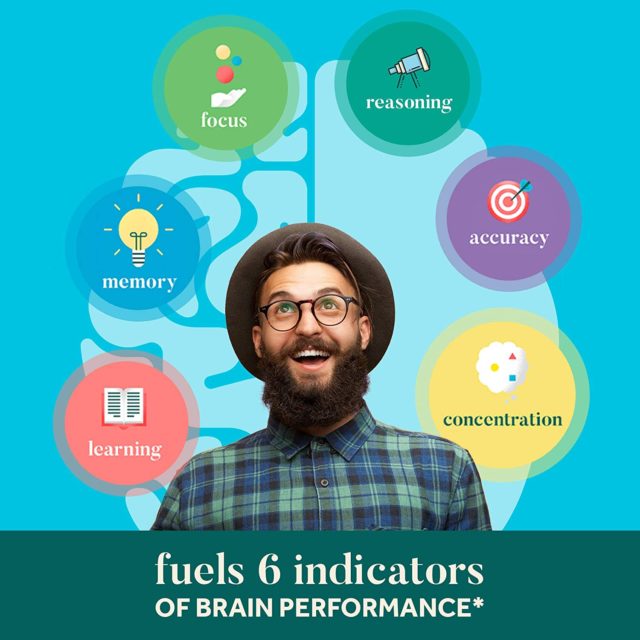
Healthy Food, Healthy Brain: Exploring the Link Between Healthy Eating and Brain Health.
The human brain is a marvel of evolution, capable of creating breathtaking works of art and music, developing complex systems of culture, language, and society, and uncovering mysteries of the universe through science, technology, and mathematics. But even a healthy brain couldn’t do any of these things without a healthy body to support it.
Our brains and bodies are inextricably linked through a variety of systems, working in parallel. When these systems are working at their peak performance, our brains also are able to reach their full potential.
When our body’s systems slow down or begin to function poorly and become unhealthy, our minds struggle to perform. They can suffer from fatigue, stress, or any number of adverse mental consequences.
If you want to test your cognitive abilities, try CogniFit’s brain training programs!
HOW ARE THE MIND & BODY CONNECTED?
Anyone who has had to perform on stage or give a speech in front of a large group of people knows that the stress and anxiety, supposedly mental phenomena, can manifest in physical discomforts such as “Butterflies” in our stomachs, sweaty palms, and increased heart rate.
Similarly, when we find ourselves receiving praise or affection, the feelings of happiness and euphoria we experience are readily apparent when our cheeks blush, our eyes dilate, and in extreme cases, we can even begin to cry from joy.
But just as our brain can affect our body, so too can our bodies have a powerful effect on how our brains function.
A cup of coffee in the morning helps us focus and feel more alert. A glass of alcohol can give us a euphoric feeling, reduce social inhibitions, and drastically slow down our ability to react to stimuli.
While these are extreme examples of the brain-body connection, the interconnectedness of our mental and physical selves means that nearly everything we do to our body, from taking medications, running a marathon, or sitting on a couch all day playing video games, to something as simple as drinking a glass of water can have an effect on how we feel and how well our brains perform.
EXERCISE & HEALTHY DIET FOR A HEALTHY BRAIN

By taking care of our bodies, we can help to ensure our brains are functioning at their best. Although there is no single exercise or diet that is right for everyone – each person should speak to their nutrition or health professional to understand the best regimen for themselves – there are specific general rules of thumb for exercise and diet that can help just about anyone improve their brain health.
Exercises for a healthy brain:
- Aerobic Exercise – Exercises that increase your heart rate and breathing are great ways to improve your overall health. These are great for maintaining a healthy body mass, toning muscles, and improving cardiovascular function, which in turn means your body becomes more efficient at delivering oxygen to your body and brain.
- Anaerobic Exercise – Anaerobic exercises include activities such as High-Intensity Interval Training, strength training, or calisthenics. These activities are a great way to keep your body toned and build muscle. As these exercises burn stored energy from your body, they are an excellent choice for managing fat and weight loss.
- Mind/Body Exercise – Not all exercises require you to run long distances or lift heavy weights to have a substantial positive impact on your physical wellbeing. Activities such as yoga, Pilates, or many martial arts – Which combine physical stamina, balance, and flexibility with mental focus and concentration – can be a great way to keep your body and mind in tip-top shape.

Want extra help boosting your brain health?
Essential Nutrients for a healthy brain:
- Proteins – Our body needs plenty of protein to function correctly. It helps us repair cells, it is integral in building and maintaining muscle, it promotes growth in children and adolescents, and it provides many of the building blocks our cells need to keep us healthy.
- Fats – Though fats have a bad reputation, they aren’t inherently bad for us. In fact, our bodies need a certain amount of fats to function properly. Fats can provide certain amino acids our bodies need to work and can help with absorbing nutrients such as vitamin A, vitamin D, and Vitamin E. It is essential, however, to be careful, as any fat that our body doesn’t break down for these essential tasks can be converted to stored energy in the form of body fat.
- Carbohydrates – Carbohydrates, like fats, get a bad rap. But just like fats, our bodies actually need a certain amount of these nutrients to function properly. Carbohydrates are the fuel that our body uses to power our internal organs and keep us healthy. Certain carbohydrates also have additional benefits, such as fiber, which helps us to feel fuller for longer.
- Vitamins – Vitamins are a group of micronutrients our bodies require in order to perform a variety of functions. Vitamins can help maintain healthy skin, strengthen bones and teeth, and much more. There are a total of 13 essential vitamins which we can get by eating plenty of fruits and vegetables.
- Minerals – Similar to vitamins, our body needs a variety of minerals to maintain proper functions, maintain bone and heart health, regulate levels of water, salt, and Ph in our bodies, and more. Minerals are typically divided into two categories: Macrominerals and trace minerals. Macrominerals are far more prevalent in our bodies and include minerals such as calcium, phosphorus, magnesium, sodium, potassium, chloride, and sulfur. Trace minerals are less prevalent and include minerals such as iron or sulfide.
Healthy Foods for a Healthy Brain

Eating healthy and providing your body and brain with all the essential nutrients doesn’t mean you have to give up the foods you love. Plenty of delicious foods provide fuel for brain health!
- Avocados – These fantastically fresh-tasting vegetables are a great source of healthy fats and vitamins. Place them on whole-grain toast for some additional fiber as well as some lean, sliced turkey breast for some protein, and you have a healthy breakfast option to start your day off with plenty of energy for a healthy brain!
- Blueberries – These powerful little berries pack a tremendous amount of nutrients such as antioxidants that promote brain health and are an excellent choice for a mid-morning snack, especially combined with a handful of healthy nuts such as almonds.
- Fish – Seafood can be an excellent choice for a light yet filling lunch. Delicious fish such as salmon, anchovies, or trout provide plenty of healthy fats and omega-3s to boost brain function. Pair a baked filet with some broccoli, another food filled with healthy nutrients, and your body and mind will still be going strong even as your coworkers begin to feel tired and grumpy as they enter the afternoon slump.
- Dark chocolate – If you are looking for a sweet snack to make it through until dinner, dark chocolate may be the right choice for you. Cacao, the main ingredient in chocolate, is packed full of a special type of antioxidant known as flavonoids, which excel at boosting brain health. Pair a small amount of dark chocolate with a cup of your favorite coffee (just go light on the cream and sugar), and you have a great snack to keep your mind sharp throughout the afternoon.
- Tomatoes – These versatile fruits are packed with healthy nutrients, including lycopene, which promotes a healthy brain and can help keep our minds sharp as we age. Pair these with fresh leafy greens such as spinach, a dash of olive oil, some healthy nuts such as walnuts, and lean white meat and you have a tasty dinner salad that is perfect for any day of the week.
If you are looking for a healthy, natural way to boost your brain health, speak with a trained nutritionist or medical professional and learn more about how a healthy diet and exercise can keep your mind sharp.












